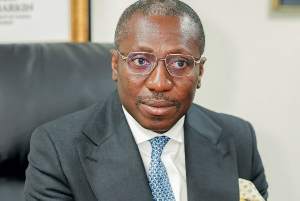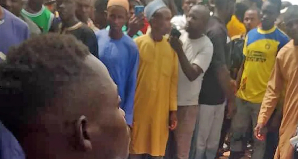The Ghana Education Campaign Coalition (GNECC) has expressed concerns about the feasibility of the proposed implementation of the free Senior High School (SHS) policy as announced by President John Dramani Mahama in his recent State of the Nation Address to Parliament last week. The GNECC said some of the educational policies still have some challenges which are yet to be addressed.
According to the Executive Council Chairman of GNECC, Mr Bright Appiah, who spoke for the Coalition, the Free Compulsory Basic Education (FCUBE) Programme, for example, still suffered ineffective teacher deployment and this has adversely affected performance monitoring.
Addressing a news conference in Accra on the state of basic education in Ghana, Mr Appiah observed that governments have over the years initiated various programmes to reform the education system in the country in line with the international protocols such as the Education for All (EFA) and the Millennium Development Goals (MDGs).
Again Ghana, he acknowledged, has seen major improvement over the years by implementing these initiatives and intervention to improve the education system and ensure that all school-going age children have access to quality basic education.
Mr Appiah opined that the 2013 National Education Assessment findings released by the Minister for Education last month, showed alarming performance levels for pupils in primary stages three and six in Mathematics and English, which further worsened when disaggregated by public and private provision as well as rural and urban locations of pupils.
He also said there were other statistics which also reflected our fundamental challenges with the quality of our education services, particularly at the basic level, which was the main objective of the press conference as it was to shed more light on these critical issues in the education sector.
President John Dramani Mahama has said the source of funding for, and details of the free Senior High School (SHS) policy which starts from the 2015/2016 academic year will be fully explained in the 2015 budget, according to VibeGhana.com.
The President's clarification was a response to some reports that said Education Minister Prof. Jane Naana Opoku Agyemang had said she did not know where funding for the policy will be sourced.
Cutting the sod for the construction of the first 50 of 200 Senior High Schools promised by his government, President Mahama said the arguments surrounding the source of funding are unnecessary.
“I want to inform those who want to know where the money is coming from that they should wait for the presentation of the 2015 budget.
“If they look in the budget and they don't find allocation for free SHS, then they can raise that issue”, the President stressed, adding that: “I hope that this response puts to rest any unnecessary argumentation surrounding the minister of education”.
The free SHS policy has been estimated by the Government to cost approximately Ghc71 million.
Mr Appiah further touched on the issues of efficient deployment of teachers with effective teacher performance monitoring, efficient distribution and utilisation of education resources, decentralised management of basic education, and said it was gratifying to note that in the President's 2014 state of the nation address, he identified quality and affordability as two of the three top areas of government focus.
He commended the government for taking steps to address some of these issues particularly its current efforts to rationalise teacher distribution and reduce teacher absenteeism as announced by the Minister of Education, and was reiterated by President Mahama in his address, where he called for a nationwide support of the teacher rationalisation process implemented by the Ghana Education Service (GES).
He said even though these measures are being put into place, they are however concerned that these processes are being implemented without any assurances as to whether the system for identifying vacancies and postings have been improved to guarantee equitable distribution of both numbers and quality of teachers. He said there was also the concern of 'ghost names' on the payroll and delays processing allowances of newly posted teachers which have not been fully addressed. He therefore called on the GES to take the necessary steps to address these concerns in order to ensure the success of the rationalization exercise.
Mr Appiah said it was their expectation that the Ministry of Education will, in accordance with the government policy for decentralisation, speed up action in developing a road map with clear timelines for addressing all outstanding legal and operational issues in relation to the decentralisation of basic education.
He stated that the Coalition has over the past years consistently called for closer attention to measures which will improve the quality of basic education in the public school system and maintained that the complex bureaucracy of basic education management has fostered delays in execution of management decision and weak performance monitoring systems at all levels.
Mr Appiah said the debate on the way forward for secondary education is sadly still being politicised. He urged that while government worked at improving access to secondary education, their efforts should not necessarily be on just the provision of infrastructure but measures should be taken that the factors that ensure quality teaching and learning are put in place at both the basic level as well as the secondary level.
He again said that, the Coalition will continue to support the call for a move away from the current practice of education decentralisation, to a proper devotion of decision making to the districts. He therefore, on behalf of the Coalition, called the attention of all stakeholders in education and politicians to stop politicising the efforts at improving quality and access to education in the country.
General News of Friday, 7 March 2014
Source: The Public Agenda













